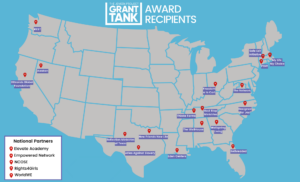This article originally appears in The Spectator’s October 2020 US Edition. Written by Julie Bindel.
‘What happens in Vegas, stays in Vegas’ is the popular saying. The phrase is thought to have originated in part from the legal brothels of Nevada, where men are assured of anonymity. These brothels have been considered a necessary service industry in the area since the 19th century, when Nevada was populated almost entirely by male gold prospectors. There are currently 21 legal brothels in operation across seven of Nevada’s counties, and I’ve visited seven — as a journalist, not as a sex buyer. What I saw and learned was horrible.
Described by one former Nevada prostitute as ‘pussy penitentiaries’, Nevada brothels are only allowed in counties with populations of fewer than 400,000 so as not to offend the residents.
Legal brothels are often portrayed as fun and harmless, as in HBO’s Cathouse, a documentary series about the Moonlite BunnyRanch in Nevada. The reality is quite different. Legal brothels harbor the most viciously abused women, often pimped and controlled and treated as nothing more than a commodity.
Change could be on its way. Lawyers on behalf of sex-trafficking survivor Rebekah Charleston filed a lawsuit last year against Nevada’s permissive laws on prostitution. The case was dismissed, but, following an appeal submitted by the legal team, the Ninth Circuit requested an oral argument on the case, which is expected to be heard in November.
According to Charleston, Nevada’s legal brothels are in violation of and in direct conflict with federal law. The lawsuit seeks an order declaring the licensing of brothels to be unconstitutional, null and void. The crux of the case is that by creating conditions that enable sex trafficking, whether within or across borders, Nevada is in violation of the Thirteenth Amendment, which forbids slavery and involuntary servitude in the US.
In 1910, Congress approved the Mann Act, which criminalized the transport ‘of any woman or girl for prostitution’, with the intention of combating prostitution and human trafficking in the US. In 1986, the clause of ‘criminalized coercion’ and enticement to ‘travel in interstate…to engage in prostitution’ was added, with a maximum jail sentence of 20 years.
Charleston is asking the court to issue a permanent injunction prohibiting the State of Nevada from permitting legal brothels. She is also requesting that the state creates a ‘Sex Trade Exit Fund’, which would provide mental health services, rent assistance, job training, scholarships and funding for medical treatments for sex-trade survivors.
In the 1990s, Charleston was trafficked to Nevada and sent by her pimp to a legal brothel. While there she was not allowed to turn down a john and suffered multiple violent rapes and assaults. After 10 years of hell, Charleston finally escaped in 2009 when federal authorities became involved. She said in her evidence to the court that the practice of legalized prostitution in Nevada is ‘regressive, oppressive and targets the most vulnerable women’.
Charleston is now asking the court to redress the harm inflicted upon her and countless other women and to put an end to the legal loopholes that allow traffickers to profit from the exploitation and industrialization of women’s bodies.
Continue Reading on Spectator.us
This article is in The Spectator’s October 2020 US edition.






